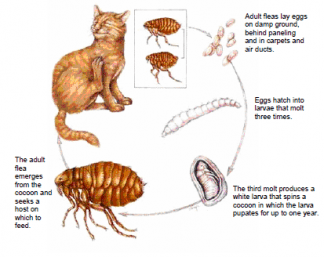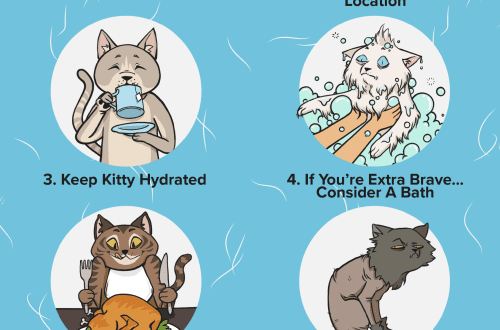
Fleas and worms
Not only people will be delighted with your kitten
Your kitten loves to be noticed and fussed over, however, he will get something else from parasites. Fleas, worms and ticks are a very common problem and it is unlikely that your pet will be able to avoid them. However, parasites are not so dangerous and are easy to get rid of. If you encounter this problem, your veterinarian will be happy to help you find the right remedy and advise you on how to succeed in dealing with intruders.
Fleas
Sometimes, unusually warm weather can cause a spike in the population of these parasites, including around your home. Even if you’ve been treating your kitten regularly, it may start to itch. In this case, inspect his coat – if there are any small brown spots on it. If you find any, transfer them to a damp cloth: if they turn red-brown, you are dealing with flea droppings. In this case, in addition to your pet, you also need to process your home. Buy from your veterinary clinic a special spray for carpets, upholstered furniture and floors (fleas can crawl into the corners of the room and cracks in the floor and lay their eggs there). Remember to clean and sanitize your vacuum cleaner after use. Follow the directions on the package and you should be able to get rid of this annoying problem easily, although it can take up to 3 months to completely eradicate the parasites. This treatment interrupts the flea’s life cycle by killing their larvae before they get on your pet’s coat.
Worms
Most often, kittens are affected by roundworms (when your pet grows up, he will become sensitive to tapeworms as well). Worm infestation is unlikely to show up externally, but you can still notice the difference: weight loss, bouts of vomiting and diarrhea, and irritation of the skin around the anus.
It is necessary to regularly carry out treatment against worms, as prevention is always better than cure. Your veterinarian will advise you on the most effective treatment. Your kitten will need monthly treatment for the first 6 months and then every 3 months.





